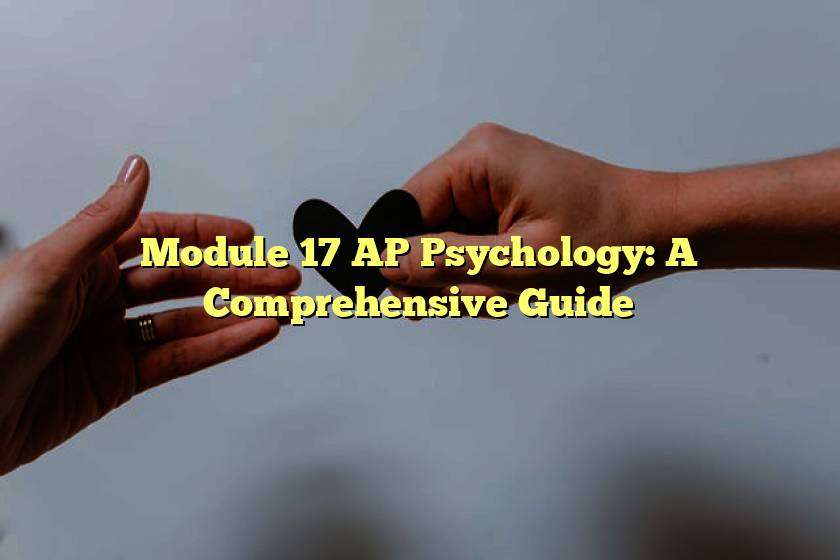As students dive deeper into their studies, they face increasingly complex topics, and one of those demanding topics is Module 17 AP Psychology. While this module might seem daunting at first sight, it’s a fascinating subject that delves into the inner workings of our brain, how we learn, and how we process information.
In this comprehensive guide, we’re going to break down Module 17 AP Psychology and provide you with all the essential details you need to excel in your studies.
Understanding Learning
The module first starts with the concept of learning, which refers to the process of acquiring knowledge, skills, and behaviors. There are different levels of learning, including classical and operant conditioning, observational learning, and insight learning.
Classical Conditioning
Classical conditioning is a type of learning in which we learn to associate two stimuli together, leading to a specific response. For instance, Pavlov’s dogs, a famous experiment, learned to associate the sound of a bell with food, leading to salivation.
Operant Conditioning
Operant conditioning is a type of learning in which behavior is strengthened or weakened depending on the consequences that follow it. This learning could either be positive, leading to the behavior’s reinforcement, or negative, leading to punishment.
Observational Learning
Observational learning occurs when an individual observes another individual’s behavior and then imitates it. This type of learning could either be implicit or explicit, depending on whether imitation occurs consciously or unconsciously.
Insight Learning
Insight learning involves solving a problem or learning a new concept through an "aha" moment, where the solution suddenly appears without any prior indication. This type of learning is rare but often found in animals.
The Memory Process
Memory refers to the process of encoding, storing, and retrieving information. Our memory capacity is large but limited, and we encode information differently, which determines how well we remember it.
Encoding
Encoding is the process of transforming sensory information into a form that can be stored in memory. The memory process consists of three types of encoding, including visual, acoustic, and semantic.
Storage
After the encoding process, the information is stored in three different types of memory: sensory, short-term, and long-term memory.
Retrieval
Retrieval is the process of retrieving information from memory and putting it to use. There are different types of retrieval, including recognition and recall.
Understanding Language and Cognition
Language and cognition are two essential components of our cognitive processing, and they are interrelated.
Language
Language is a system of communication that involves combination of words, symbols, and grammar. There are different levels of language processing, including phonemes, morphemes, and syntax.
Cognition
Cognition refers to mental processes involved in acquiring, processing, and utilizing knowledge. It involves different types, including problem-solving, decision-making, and language comprehension.
Conclusion
Module 17 AP Psychology provides students with a deep understanding of how we think, learn, and remember. It is an essential topic that provides us with the knowledge to explore the inner workings of our brain and behavior.
With this comprehensive guide, you should now have a good understanding of Module 17 AP Psychology. Remember to study hard, seek help when needed, and most importantly, stay curious!



